John D. O'Bryant

John D. O’Bryant, the first African American to be appointed a vice president at Northeastern University, served in that capacity from 1979 until his death on July 3, 1992. During that period, he oversaw the workings of the African-American Institute and provided invaluable leadership in what were often difficult times.
Read More
John was born in Boston on July 15, 1931, and was educated in the Boston public schools. He earned his bachelor’s and master’s degrees from Boston University. After serving in the U.S. Army, he worked as a teacher and a guidance counselor in the Boston public schools from 1955 to 1969. In 1969, he developed the Health Vocational Training Program at the Dimock Community Health Center and directed that program until he joined Northeastern as Associate Dean of University Administration in 1978. In 1979, he was appointed Northeastern’s Vice President of Student Affairs.
John served as president of the Boston School Committee, as national chairman of the Council of Urban Boards of Education, and founded a number of local and statewide education advocacy groups. Although he gained national prominence in the field of education, John maintained his humility and sense of humanity.
In 1992, John passed. His longtime staff described him as: ” A compassionate man who loved people; Unpretentious, never flaunting his status or influence; Always optimistic and reminding others to ‘keep things in perspective’; … A spiritual man who practiced his Christian beliefs.”
At its 25th Anniversary in 1993, the African-American Institute was renamed the John D. O’Bryant African-American Institute. By naming the building in John’s honor we remember the legacy of a man whose love and guidance profoundly influenced countless lives.
Vision
To guarantee the success of every Northeastern University student of the African Diaspora.
Mission
We cultivate and advance a culture of belonging, community, excellence, and service through active programming, engagement, mentorship, and partnership.
History
The John D. O’Bryant African-American Institute, “The Institute”, as a part of student affairs, has positioned itself within Northeastern to play a significant role in supporting African-American students and providing services and programs to increase opportunities for academic success, civic engagement, and social inspiration.
The Institute has come a long way since its early days amongst the turbulent 1960s. Its history has been one of determination and progress. Born out of the idea to create an oversight committee for Northeastern’s Black community, the African-American Institute was established in 1968 to develop and implement a long-range plan for a genuine, effective and permanent Black presence at Northeastern University. On October 5, 1992, the African-American Institute was renamed the John D. O’Bryant African-American Institute in honor of Vice President John D. O’Bryant, an untiring advocate for educational opportunity and excellence at Northeastern University and throughout the city of Boston.
Early Years: The Black Presence on Campus
In 1967, there were some 75 African-American students at Northeastern University, with an increasing number coming from outside Massachusetts. For those living in the dormitories, there was a lack of social and extra-curricular activities to connect them with their community and Black fraternities and sororities had existed in Boston on a city-wide basis since the 1920s, they did not have a presence on the campus.
As the Black students at Northeastern focused on meeting the requirements of graduation, the unrest of the fast-moving civil rights movement that had moved from the South to the North commanded their attention. By 1968, there were approximately 100 Black students at Northeastern University. Stokely Carmichael, then the National Chairman of SNCC (Student Non-Violent Coordinating Committee), came to Boston to speak to high school and college students and to help organize a chapter of SNCC here. Earlier in the year, Carmichael electrified the country with a phrase that was to summarize a change in the Black self-image: “Black Power.” Through his influence and the local chapter of CORE (Congress of Racial Equality), the NU Black students formed an Afro-American Association.
Early Years: The Afro-American Association
The first meeting of this pioneering group was held in the Ell Student Center (now the Curry Student Center). Heated debates over what to call the organization and what it would do consumed late evening and weekend hours. Energy came mostly from the students who had entered the University after 1964, but two of the first Ford scholars, Rick Johnson and Delano Farrar, were elected as co-chairs of the new Afro American Association.
The start-up process involved African, West Indian, and African American students from other local colleges including Boston State, Wentworth Institute of Technology, and Simmons College. The preamble to the AAA Constitution adopted in February of 1968, reads as follows: “Believing that Black people who are interested in Black solidarity, Black pride, and Black self-determination should work together in order to approach these ideals, we have incorporated ourselves under the name of the Afro-American Association.”
One of the first actions of the AAA was to establish a Black history course at Northeastern. Two sensitive issues facing the students were what to name the course and who would teach it. There were no Black faculty members in the History Department. The students accepted two compromises: to let the course be called American Negro History instead of Black American History and to accept having a qualified white instructor teach the course. With these decisions made, the students gained faculty approval. This success was the genesis of today’s dynamic Department of African-American Studies.
The Afro American Association reached out to the Black community to work with organizations such as the Bromley-Heath Tenants Organization. They convinced the University to establish both Co-op placements and work-study jobs with the tenant group. The AAA formed relationships with the local neighborhood anti-poverty offices of Action for Boston Community Development (ABCD), with the Boston Branch NAACP, and with the long-standing Black Greek groups in the city.
In May 1968, following the April assassination of Dr. Martin Luther King, Jr., the Association presented the following 13 demands to President Knowles:
- We demand 50 new academic scholarships for Black Students by September of 1968; and by 1971, we demand that at least 10 percent of the incoming freshman class be black.
- We demand at least one course dealing specifically with Afro American literature.
- We demand a re-evaluation of all social science and humanities courses with an emphasis on Western Civilization and freshman English concerning black contributions to these areas. We demand that representatives of the Black student body be members of any vehicle set up to re-evaluate the courses.
- We demand a re-evaluation of any summer orientation courses for black students entering on scholarship, and that this program be open to all Black entering freshmen.
- We demand that all minority group orientation courses for education majors be mandatory, with emphasis on Black culture, economics, sociology, and history. These would be open to all majors.
The Institute is Born: The Institute Idea
The AAA expanded the last demand for an oversight committee into a more far-reaching proposal. This was a proposal to establish what they called an “African-American Institute” to develop and implement a long-range plan for a genuine, effective, and permanent Black presence at Northeastern University.
The initial six goals for the Institute plan were:
- Establishing an independent organization supported by the University.
- Developing a Black Studies Program.
- Gaining resources to help meet Boston’s Black community needs.
- Developing a collective action approach within the NU Black population to address political issues.
- Improving Black student retention at NU.
- Protecting Black student and community interests.
After some initial hesitation from the Faculty Senate, President Knowles and the University trustees approved the financing of the Institute idea, including a Black Studies Program.
The official Institute proposal was presented to the University by the Black student community on February 14, 1969. On May 9, the Steering Committee of the student group met with President Knowles. They submitted and discussed a more specific proposal to establish a five-part Institute that would incorporate an African-American Cultural Center and the Black Studies Program. This proposal stated that the Institute would be responsible for the development of the Black studies agenda, research and information center, a cultural center, and library, and would serve as a clearinghouse for special academic preparatory programs for in-coming Black students.
The momentum gained by the Afro-American Institute also resulted in the first Black Cultural Festival, a four-day event in April 1969, sponsored by the University. The Foreword in the festival program booklet, written by student Jean Smith, read in part:
“The call for Black Consciousness is at first painfully hard to answer; it’s hard to start all over again to establish new principles and modes of operation; for we have struggled vainly for too long trying to approximate white culture; our artists, our scientists, our leaders have been respected by us only after they have been “legitimized” by the white world. We face a prodigious task; we’ve danced to this tune so long now it becomes necessary to stop and gather our senses, to stop and listen to the tune and decide which of its elements warrant our response.”
The Institute is Born: Going into the Community
At its inception, Institute activities were not, however, to be based on-campus at Northeastern. The students wanted the Institute located in the nearby community, the area it also wanted to serve and be relevant to.
The legendary Norfolk House, a mile south of the campus atop John Eliot Square, a settlement house first for white European immigrants and then for Blacks in the 1940s and 50s, had space on the top floor. And so, it was there in space rented by the University from the Roxbury Federation of Neighborhood Centers, that the first Black Studies courses, cultural programs, and the library of the Institute were established and operated.
The Institute is Born: Back on Campus
The on-campus facility identified by the University for the development of the African American Institute was a small two-story building at 104 Forsyth Street. The students used both the Norfolk House quarters and the Forsyth building. By September 1970, the full-time Black student population approached 500. The newer, incoming students wanted all of the Institute services and programs to be on campus.
Gradually, the Institute activities moved to the Forsyth Street site with the exception of the library. It remained at Norfolk since space was limited at the campus site. The Forsyth building had been considered only a temporary site and a newly designed and renovated building at 40 Leon Street, the present site of the John D. O’Bryant African American Institute, was readied for occupancy by the fall of 1971.
During the summer of 1972 the idea of a “black student newspaper” was discussed. It was felt that Northeastern News and Northeastern Today were not meeting the needs of the entire University community. On November 3, 1972, the first issue of the ONYX was published. The name of this publication came after a lengthy discussion. Senior engineering student Wilbur Jenkins suggested ONYX because, as he explained, “it’s a stone, which in its natural state, throws off bands of different colors. It has some relevance for everyone, depending on what angle you look at it.”
By the mid-1970s, the African American Institute gained a new foothold and was revitalized. The Institute also began to address other academic concerns of the more than 700 Black students on campus. Many were in need of tutorial help, counseling, learning materials, and people who could address the African American experience through academia.
Continued Progress: Black Studies and Culture
From 1969-70, the number of Black studies courses increased to include The Black Artist in Music, Race and Cultural Relations, Afro-American Literature, Modern Africa, Africa to 1850, African Art, and Swahili.
The African American Studies Department and Project UJIMA were started during Greg Ricks’ administration with the Department becoming fully accredited by the University in 1974. Dr. Ramona Edelin, who had been a summer program staff member in the Institute, became the first chairperson of the Department. Over 40 courses were being offered in the 1976-1977 academic year. The Department had four full-time instructors and staff who were located on the fourth floor at 11 Leon Street, diagonally across from the Institute in what is now the Ryder building. Courses ranged from Science and the Black Society to Studies in African Religions to Race, Racism, and American Law.
But, by 1982, The African American Studies Department was on its way to being dissolved and reduced to a Black Studies Program. The Department’s status was saved in a major victory spearheaded by direct student action, and supported by the efforts by the director, Dr. Ozzie L. Edwards, African American Institute Library Verdaya Mitchell-Brown, and protests by The Coalition for the Preservation of African American Studies. In August of 1982, President Kenneth Ryder reversed a decision by the Dean of the College of Arts and Sciences “to get rid of” African American Studies as a discipline.
Continued Progress: The Amilcar Cabral Memorial Student Center
The Amilcar Cabral Memorial Student Center, established on the first floor of the Institute building in the early 1970s, promoted positive cultural and social values.
Over the years, the Cabral Center had provided the entire Northeastern University community with the opportunity to familiarize itself with Black cultural heritage through programs that explore the Black experience throughout the world. The presentation of well-known public figures and scholars, seminars, films, and social programs continue to emanate from the Cabral Center.
Continued Progress: The Library
By the mid-70s, the AAI Library that started as a Black community resource at the Norfolk House and which sponsored the first cultural programs for the Afro American Association became another dynamic component of the Institute.
While the Norfolk site library had been staffed by students, Verdaya Brown became the first full-time librarian in 1973. Trained in library science, she had previously helped establish the African-American collection at the Boston Public Library. According to Brown “one of my challenges during my 14 years at the AAI was to get students to understand that it was not a negative thing to seek out understanding about themselves, Black history, and culture.” For that reason, outreach became a major agenda of the librarian and led her to find the Multicultural Discussion Group and NIA – The African American Literary and Cultural Guild and to cultivate relationships with the library staff throughout the University.
Continued Progress: The Institute Expands
By 1976, there were over 1,000 Black students at Northeastern. In an interview in 1979, after leaving the Institute for an Associate Dean position at the University, Ricks recalled, “for the first time Black students began to realize a total integration into the University…The Institute gained national attention as Black leaders and scholars, such as Jesse Jackson, Dr. John Henrik Clarke, and Julian Bond visited the Institute.”
Later, in 1981, in a major organizational change at NU, the African American Institute became part of the Student Affairs Division of the University. The late John D. O’Bryant was Vice President for Student Affairs at the time and this change positioned the African American Institute to have a greater impact in the 1980s. This time sparked new Institute initiatives including:
- Students traveled to Africa during the summer of 1982 through Operation Crossroads Africa.
- The Distinguished International Visitor’s Program through the Cabral Center brought some 35 educators, lawyers, political activists, and health specialists from 12 countries to the Institute by the end of 1983.
- The Unity and Awards Banquet honored Black student achievement.
- The Dean Roland E. Latham Oratory Competition was launched and named in memory of a long-time African American administrator at NU, and the first Director of Minority Affairs.
- In 1985, the Institute had a full complement of staff under the direction of Dr. John Norman
The story of the African American Institute is one of determination and progress. On October 5, 1992, the African American Institute was renamed the John D. O’Bryant African American Institute. Vice President O’Bryant, an untiring advocate for educational opportunity and excellence at Northeastern University and throughout the city of Boston during his lifetime, passed away suddenly on July 3, 1992. He, along with hundreds of students and a host of staff, were “keepers of the tradition.” Informal dedication ceremonies in May 1993, his name was officially added to that of the African American Institute.
In 2001, students, alumni, and staff rallied in support of the continued presence of the John D. O’Bryant African American Institute on Northeastern’s campus. Students presented the following 11 demands to then-President Richard Freeland:
- The John D. O’Bryant African American Institute remains a freestanding building in its present location.
- There be a large-scale expansion and enhancement of the building, including making it handicapped accessible and corresponding architecturally with the surrounding development.
- The number of staff of the John D. O’Bryant African-American Institute be increased to broaden academic support services to all Black students over 5 years to increase their retention and graduation rates.
- The Ujima Scholars Program be expanded to a five-year program to support the retention and graduation of these students.
- The operating budget of the John D. O’Bryant African American Institute is increased to support expanded academic services and programs.
- A Black Student Presidential Advisory group be implemented to serve as a link between the President’s Office and the Black Students of Northeastern University.
- The John D. O’Bryant African American Institute be included in the Northeastern University Campus Tour.
- There is a formal integration of the African American Studies Department and the John D. O’Bryant African American Institute including locating the Department within an expanded John D. O’Bryant African American Institute.
- Student Financial Services office employs Black Financial Aid advisors that are specifically assigned to deal with the financial needs of Black students.
- There is a section of the CO-OP department devoted to community service in minority communities and positions for Black-Owned businesses.
- There be an increase in the percentage of full-time Black faculty to equal the increased percentage of full-time Black students to 10% at Northeastern University.
Present Day: Fall 2007 Onward
In 2007, Richard O’Bryant, Assistant Professor of Political Science and son of the late John O’Bryant became the director of the Institute.
The university community formally welcomed Dr. O’Bryant in the fall to his new position with a gala celebration with many well-wishers from the greater Boston community. Watch a special congratulatory message from Dr. O’Bryant’s classmate and colleague at MIT, Dr. Randal Pinkett. (You may recognize Dr. Pinkett from his winning appearance on season 4 of the Apprentice!)
Staff
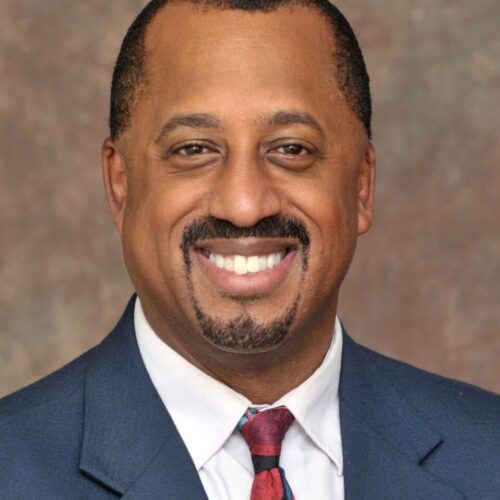
Dr. Richard L. O’Bryant is director of the John D. O’Bryant African-American Institute at Northeastern University – named in remembrance of his dad. At the John D. O’Bryant African American Institute Dr. O’Bryant oversees educational, leadership development and cultural programs, services and activities focused on African American students. The John D. O’Bryant African American Institute has become more engaged with many aspects of Northeastern University including academic components, community outreach efforts, connecting with the NU Black alumni and the enhancement of the breadth and depth of programs and services offered. Dr. O'Bryant also teaches in the College of Professional Studies, the Political Science Department, School of Public Policy and Urban Affairs and is affiliated faculty with the Dukakis Center for Urban and Regional Policy. Dr. O’Bryant has connected the Institute nationally as President of the John D. O’Bryant National Think Tank (JDOTT) and an organizational membership with the Association for Black Cultural Centers (ABCC). Dr. O’Bryant joined Northeastern in 2003 and came to Student Affairs in 2007. Dr. O’Bryant received his Ph.D. in urban and regional studies from MIT in 2004 and is a longtime member of the Concerned Black Men of Massachusetts (CBMM).
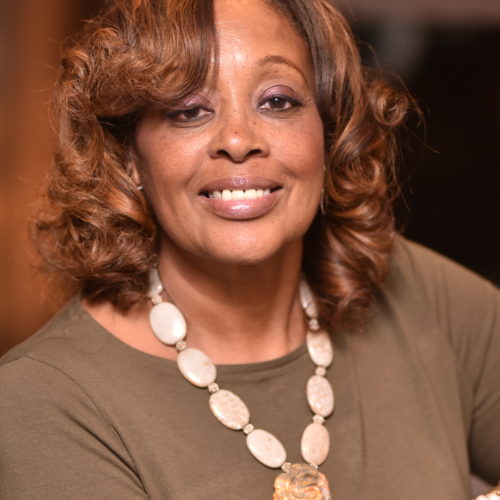
Elizabeth Clark is the Associate Director of Student Leadership and Global Engagement at the John D O’Bryant African American Institute, Northeastern University. Elizabeth is a graduate of Northeastern University and holds graduate degrees, including an M.Ed. in Counseling Psychology and CACS in Public Administration. In her role as associate director, Elizabeth, works closely with the director to carry out the vision and mission of the Institute. She also oversees the Dr. Martin Luther King, Jr. Graduate Fellowship Program.
Elizabeth returns to NU from the Roxbury Community College where she served as the Coordinator of Student Life and Student Engagement. She was responsible for the cultural, educational, and social enrichment of the students. Elizabeth assisted and supported student leaders’ in the development of their leadership skills through the various organizations and clubs under the guidance of the Office of Student Life. She brings with her a wealth of knowledge, skills, and experience in organizing student life and student engagement from her own experience as a community activist.
Prior to her position as Coordinator of Student Life and Student Engagement, Elizabeth was the Acting Director of Admissions where she developed and implemented the recruitment and enrollment strategies.
Elizabeth served as co-host for the Boston Cable Network show Higher Education Update, a half-hour show dedicated to informing the community on issues pertaining to secondary education. She is also certified in HIV/AIDS and Substance Abuse education which was received from Boston University School of Public Health.
Elizabeth is a member of Alpha Kappa Alpha Sorority, Inc. Psi Omega Chapter where she serves on the Graduate Advisor Council. Elizabeth is also a member of the Middlesex County Chapter of The Links, Inc. and The Daughters of Myrtle.
Since joining the Middlesex County Chapter of The Links, Elizabeth has served as Vice President of Membership, Facet Chair for Services to Youth, and Facet Co-Chair for National Trends and Services. She also served as a member of the Greenlight Gala Committee, Retreat Committee, and Membership Committee.
Elizabeth served as the President of Jack and Jill of America, Inc. Newton Chapter, Associate Chair, Jack and Jill of America, Inc. Newton Chapter, Treasurer, Jack and Jill of America, Inc. South Shore Chapter, Vice President of The Boston Pearl Foundation, President of The Boston Pearl Foundation, Vice President of Roxbury Community College Foundation, and Secretary for the Daughters of Myrtle.
She is a Board member of the Boston Renaissance Charter School Foundation and sits on the Trustee Board of Myrtle Baptist Church.
Elizabeth and her husband Grady Donald reside in Randolph.
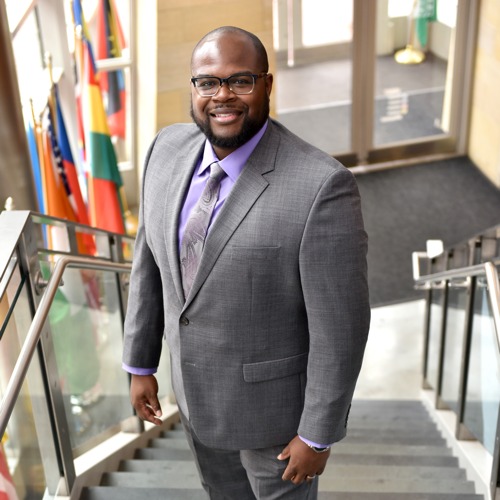
Cinqué Dunham-Carson is the Program Manager of Student Development and Leadership Programming at the John D. O’Bryant African American Institute. He joins NU from Bottom Line, a nonprofit dedicated to helping first-generation and low-income students get into college, graduate from college, and go far in life. Holding several positions during his tenure, Cinqué has directly managed student caseloads, facilitated student recruitment, and led community engagement efforts. He also supported the Regional Leadership Team and managed office operations in the Jamaica Plain office as the Associate Director. A strong proponent of volunteerism, Cinqué has served on various community advisory boards and committees. As a broad member of a Boston-based nonprofit named Apprentice Learning, he is committed to career exploration experiences for young students and understands the value of caring and invested adults. He also volunteers for Big Brother Big Sisters of Massachusetts Bay and is a member of Iota Phi Theta Fraternity Inc.
As the Program Manager, Cinqué is primarily responsible for managing and coordinating the Ujima Global Leaders Program (UGLP), Legacy Mentoring and Leadership Program (LMLP), and the Foundation Year Scholars (FYS). Additionally, he will manage the Institute’s leadership programming and will work closely with colleagues of the Institute to create, plan, initiate, and implement programs, workshops, and projects at Northeastern. He welcomes NU stakeholders and beyond to collaborate with the Institute for the betterment of our students and the broader community.
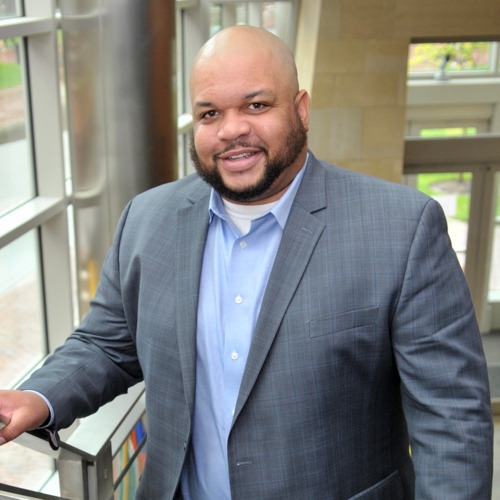
Keith Allyn Motley is currently the Program Manager Outreach and Communications at the John D. O’Bryant African American Institute and also runs the Institute’s work-study program. He graduated Northeastern University in 2006 with a major in Entrepreneurship and a minor in Marketing. Keith was a part of the only Northeastern football team in school history to win a conference championship in 2002. Upon graduating Northeastern, Keith was a City Manager for Enterprise Rent-A-Car and then worked for IBM in their predictive analytics department. He also co-owns a restaurant in Boston with his mother. Keith grew up in the Institute, as his father James Keith Motley was Director from 1987-1992. Keith has a wife, Marie, and two children, Maya and Michael Allyn.
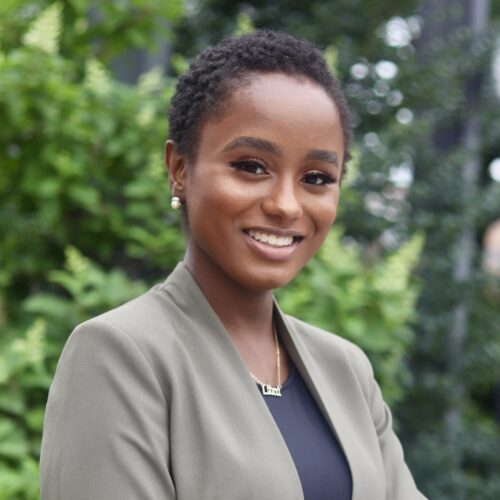
Denise Douglas, PharmD is a Program Coordinator at the John D O’Bryant African American Institute – assisting with the planning and implementation of programming and events. As a double Husky, she graduated Northeastern with a Bachelor’s in Pharmacy Studies in 2021 and a Doctorate in Pharmacy in 2022. She is currently finishing her Master’s in Public Health and is interested in branching into the health technology sector.
Prior to her position as a Program Coordinator, Denise has held several leadership roles in the Northeastern community ranging from being a Residential Assistant, a Senior Mentor for the Legacy Program, a Jumpstart AmeriCorps Team Leader, and a Health Equity Intern at the Institute for Health Equity and Social Justice Research. From her time as a student, Denise brings with her several years’ worth of skills and knowledge in student engagement.
Continuing her advocacy for community involvement, Denise is a member of Zeta Phi Beta Sorority Inc., the Delta Omicron Zeta chapter, and also volunteers for Big Sister Boston.
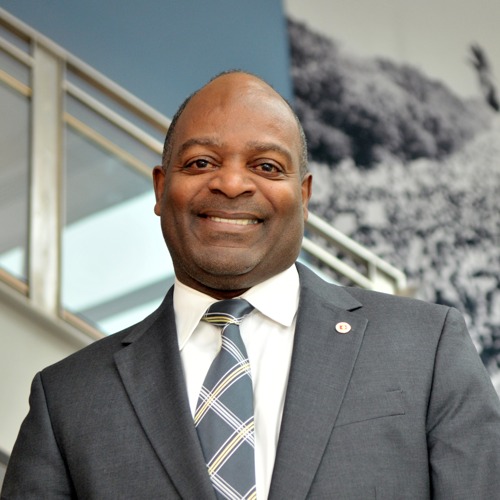
Brother Rodney Sadberry is a Student Development and Outreach Coordinator at the John D. O’Bryant African American Institute. Brother Rodney received a Bachelor of Arts degree from Northeastern University and a Master’s degree in Education from Wheelock College.
As a result of Brother Rodney’s relentless work and dedication to students and their development, he connects the students with the various academic components and outreach efforts to insure the success of each student. Moreover, he connects African American Students to the cultural programs, services and activities not only at the African American Institute but also the services and activities that are offered across Northeastern University Campus. Brother Rodney has been able to provide our community with the guidance that they need to experience self-worth, identity, self – esteem resulting in a high level of motivation.
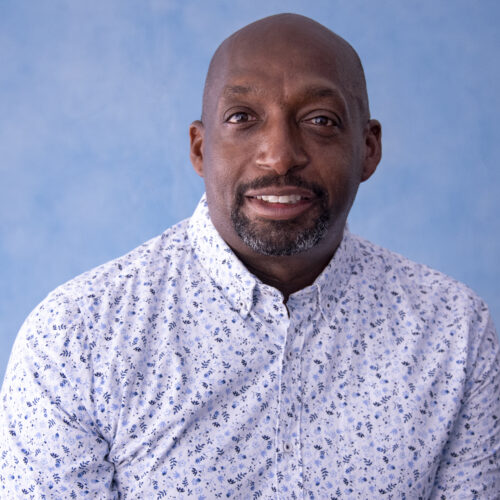
Gregory Francis is currently the Program, Events, and Operation Coordinator at the John D. O’Bryant African American Institute. He graduated from Northeastern University with a B.A. degree in Logistics and supply chain Management and Marketing.
Before coming to JDOAAI, Gregory started his career at Lotus Corp in the sales department upon graduation.
In 2004, he worked for the DNC in the Transportation and Operations department for the 2004 Democratic National Convention. As a Boston native, he was positioned to plan and manage the bus transportation for delegates from the various hotels to the Convention at The TD Bank Garden.
As an entrepreneur, he spent many years in a family-owned business in the construction industry. The fingerprints of Greg’s work can be seen throughout the city, especially close to NU at the Madison Park Housing Development on Ruggles Street. His passion for Caribbean culture and entertainment fuels his urge to create event productions for the Caribbean community, where he’s produced events in Boston, Miami, Canada, the Bahamas, and Trinidad.
Gregory is married Linda Francis, also a Northeaster Alumni, and they met while they were undergraduates at Northeastern University. Together they have two children: Skylar and Greyson.
